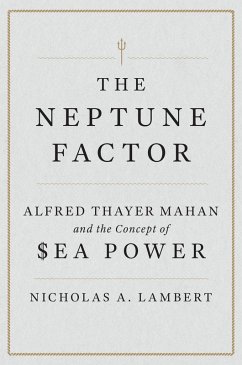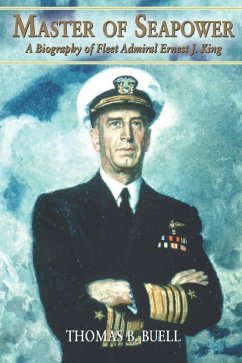
Erich Raeder (eBook, ePUB)
Admiral of the Third Reich

PAYBACK Punkte
10 °P sammeln!
From 1928 to 1943, Erich Raeder led the German navy during the last turbulent years of the Weimar Republic, the rise of Hitler, and through World War II, yet until now there has not been a full-length biography written about him. This study draws on archival resources and the rich scholarship of German naval history over the past five decades to review the evolution of Raeder's concept of naval strategy and his attempts to achieve the political and military means necessary to attain the navy's global naval ambitions. While previous histories have viewed Raeder as a product of the Wilhelmian er...
From 1928 to 1943, Erich Raeder led the German navy during the last turbulent years of the Weimar Republic, the rise of Hitler, and through World War II, yet until now there has not been a full-length biography written about him. This study draws on archival resources and the rich scholarship of German naval history over the past five decades to review the evolution of Raeder's concept of naval strategy and his attempts to achieve the political and military means necessary to attain the navy's global naval ambitions. While previous histories have viewed Raeder as a product of the Wilhelmian era and heir to Admiral von Tirpitz's sea power ideology, this work clearly demonstrates the navy's affinity with Hitler's fascism. Author Keith Bird refutes Raeder's own argument that his navy was non-political and independent and shows him to be a political activist and the architect of German naval policy. For the first time, Raeder's strict leadership of the navy after 1928 and his relationship to Hitler and the National Socialist state is placed in the context of Raeder's formative years as an Imperial naval officer, his First World War combat experience, and his critical role in the survival and development of the post-war Reichsmarine. The author traces the impact of Hitler's influence on both the pace and nature of naval rearmament 1933-1939 and the conduct of the Kriegsmarine in war as well as Raeder's furtive attempts to influence Germany's strategic thinking in favor of a maritime strategy. Blinded by his need to justify the navy's existence and achieve his vision of world power, Raeder was ultimately defeated by the contradictions in his own policies as well as Hitler's and the realities of Germany's resources and military necessities.
Dieser Download kann aus rechtlichen Gründen nur mit Rechnungsadresse in A, D ausgeliefert werden.













